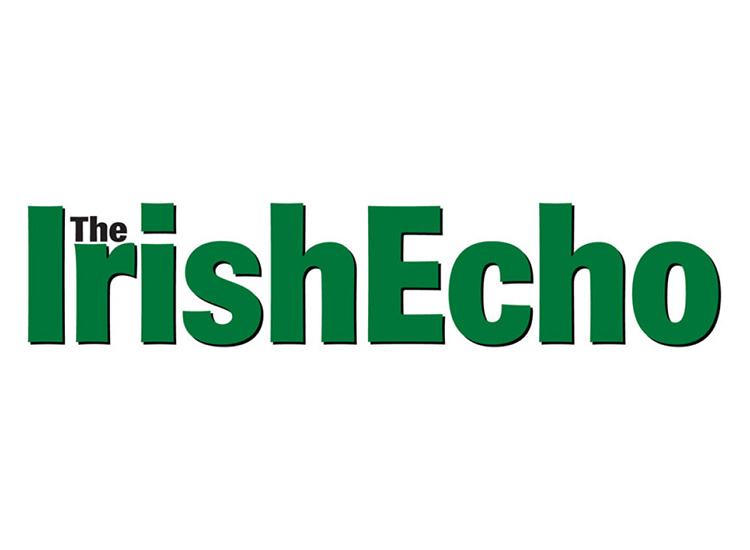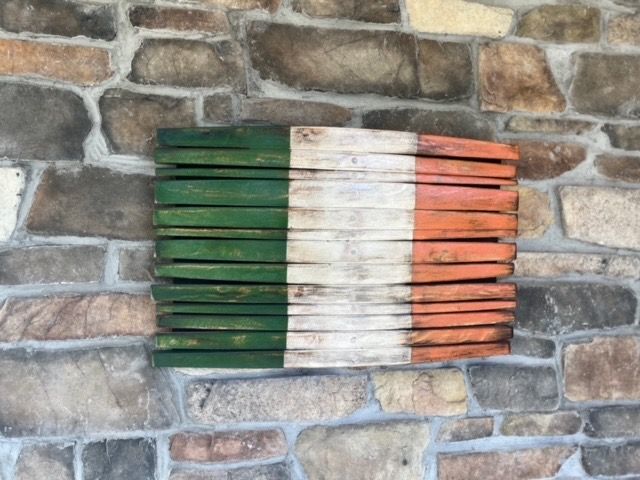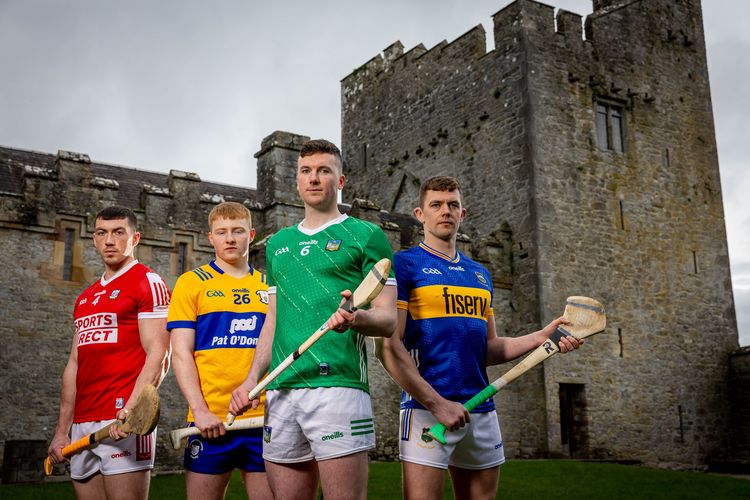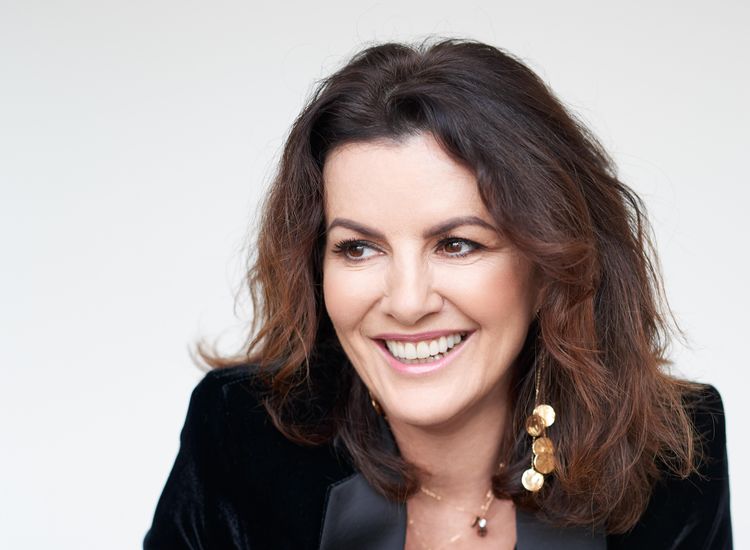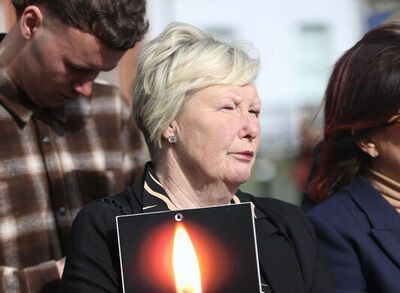Luke Kelly in 1967.
On Friday night, the New York Irish Center, Long Island City, will present “The Performer,” which has rare, largely unseen performance footage of folk legend Luke Kelly (1940-1984). The event will have tea, coffee, popcorn and a discount bar. (Doors, bar open at 7.30 p.m.; showtime 8.15 p.m.) As a prelude to that we reproduce a look back at Kelly’s life published in the Jan. 28 – Feb. 3, 2004, issue of the Irish Echo to mark the 20th anniversary of his passing on Jan. 30, 1984. The feature was based in part on an interview in Dublin with the entertainer’s brother, Jimmy Kelly, who had retired as an official of the trade union SIPTU not long before.
By Peter McDermott
Jimmy Kelly followed a TV talent competition recently from his seat in a local pub in North Dublin. He watched as a young man, no more than 17 or 18, sang "Raglan Road," a ballad he himself sings and his late brother made famous. Phil Coulter, one of the judges, said: "Oh my God, that's the nearest thing to Luke Kelly I've ever heard."
Kelly worries about the quality of singing in the music business these days, but he had to agree with Coulter, a friend of his brother. “He really belted it out,” he said of the youth
He remembered that Luke, who died on Jan. 30, 1984, at age 43, loved to enter talent competitions as a boy. “Even then he had a hard neck,” he said, laughing. It made up for being prevented from joining his older brother Paddy, following in their father’s footsteps, in the Lawrence O’Toole School Choir. His voice was simply too raucous.
Luke Kelly went onto become one of Ireland’s most beloved entertainers as a member of the Dubliners, Ireland’s greatest folk group.
The band was built initially around the extraordinary and unique voice of Ronnie Drew, but over time became as much associated with Kelly’s more conventional intonation. His commanding voice and presence — his brother described him as “magnetic” — and his seriousness about the music made him not just an icon to fans but a model and inspiration to Irish musicians who followed, from Christy Moore to Bono.
In life, he was as much a partier as his comrades and was wholly identified with the group’s fun, laid-back image; in death, he’s remembered more, perhaps, for his treatment of passionate and sad songs, like “Joe Hill,” about an executed American union organizer, Ewan MacColl’s “Dirty Old Town” and “Raglan Road.”
Kelly’s association with “Raglan Road” goes went back to an 1966 meeting with Patrick Kavanagh in the Bailey, one of Dublin’s best-known literary pubs. Kavanagh, who is, as his biographer Antoinette Quinn puts it, “the most important Irish poet between the death of Yeats and the rise of Heaney,” wrote his poem of unrequited passion, “On Raglan Road,” at the end of World War II. It’s named for the Ballsbridge street where he often encountered a young friend and admirer, Hilda Moriarty, a medical student from Kerry.
Moriarty’s friendship with the disheveled, middle-aged Kavanagh ended when she married a dynamic young engineer — to his disgust and outrage. But he quickly overcame his disappointment and put his poem to a traditional air, thinking he was on to a good thing, particularly in the American market. However, the idea went nowhere.
Kelly described in an interview his meeting with the poet, whose centennial will be celebrated in October: “Being in the presence of the great man I was very nervous. Then he leaned over to me and said in that sepulchral voice of his, ‘You should sing my song.’"
It was symbolic meeting also of two bohemian eras: the dreary world of the 1940s and ’50s, stifled by censorship, and the more upbeat, confident, optimistic ’60s. Part of the changed atmosphere can be attributed to Taoiseach Sean Lemass, who’d succeeded de Valera and opened up the country economically. His most brilliant minister was the flamboyant Donogh O’Malley, who’d married Hilda Moriarty.
North Wall roots
Luke Kelly was born in Dublin on Nov. 17, 1940. He was the middle of a family of four boys and two girls. “I was born two years after Luke,” said Jimmy Kelly, who recently retired as an official with SIPTU, Ireland’s largest trade union.
The parents, six children and a grandmother who was blind lived in a two-bedroom apartment in the North Wall section of the inner city.
“The Kellys are a close and loyal tribe, and none of Luke’s meteoric success in the ’60s and ’70s affected their relationships with one another,” wrote the SIPTU leader, politician and traditional musician Des Geraghty in his 1994 memoir about the singer.
Luke Kelly Sr. is remembered as a gentleman of the old school who, for instance, tipped his hat when greeting people.
“Because of the terrible times of the ’40s and ’50s, my father was lucky, because he had what they called a constant job,” said his third son, Jimmy. He worked for Jacob’s biscuit factory on Bishop’s Street for 45 years.
After a fire damaged the apartment, the Kellys moved to Whitehall, a couple of miles to the north, in what Dublin Corporation said would be a temporary move.
“But that didn’t happen; we remained in Whitehall,” Jimmy Kelly said. “It was a culture shock, because we were out in the country.”
In the old days, Luke Sr. made the trip from Jacob’s across the Liffey to the North Wall for his dinner, as the midday meal was then known. But Whitehall was too far.
“My mother never took to the new place at all,” he remembered. And nor did Luke Jr.
“He always went back to the general area, because all his friends were down there.”
He left school at the age of 13. “That was his great regret, that the educational opportunities weren’t there,” his brother said.
In adulthood, though, Kelly became a voracious reader, rarely being seen without newspapers and books. And the sporting passion of his youth, soccer, was supplanted by golf.
The interest in music came from his father.
“There was a singing gene somewhere along the line,” said Jimmy Kelly, adding that their paternal grandfather was from the same area outside Athlone, Co. Westmeath, as John McCormack.
Luke Sr. would gather his children around the fire in North Wall, and later in Whitehall, and sing the musical hall songs
“He was a very good singer — in fact, had a very sweet voice,” Jimmy Kelly recalled.
Luke Jr.’s first love, though, was jazz, which set him apart from his peers. “He had great interest in Frank Sinatra,” his brother said. He remembered that Luke would leave a Sunday night hop to listen at home to a 30-minute Radio Luxembourg program on Sinatra, and after it was over return to the dancing.
He had a series of jobs, some of them as a messenger, which he later described as demeaning. The most promising position involved working with paint, but he said he didn’t like its smell. “His friends said it was work he really didn’t like,” his brother remembered, laughing.
Folk revival
In any case, Luke Kelly went with a friend to the Isle of Man in search of hotel work, and after a time, went on to the British Midlands, following his brother Paddy.
“From there he drifted up to Newcastle, and that’s where it started,” Jimmy Kelly said.
Kelly was introduced to socialist politics and folk music. England was in the throes of a folk renewal; there were still an estimated 2,500 folk clubs in the country a decade later. Much of the music was identified with protest, and the issue of the moment was nuclear disarmament.
Still a jazz fan, Kelly’s interest in folk was the result of an “instant conversion.”
He described the moment years later: One night going up the stairs to a club, “I heard this chorus booming out, all Englishmen and they were singing in harmony.” It was a song he’d heard before on the radio, and had been impressed with the sentiments and tune. The “marvelous harmonic delivery” was of “The Old Triangle” from Behan’s “The Quare Fella.”
Kelly drifted back to Dublin in 1962, already with some singing and banjo-playing experience under his belt, to an Ireland that was being swept up in its own version of the international folk revival.
“He came home with wonderful songs; we’d never heard the like of them before,” Jimmy Kelly said.
Inevitably, he made his way to the back room in a famous bar on Merrion Row in Dublin, where musicians would gather in the morning and spend all day.
“He brought me along one day to O’Donoghue’s. ‘Come on, I want you want to hear this fella, Ronnie Drew.’”
When the loose group around Drew searched for a name, it was the bookworm Kelly, familiar with Joyce’s work, who suggested the one that stuck. The band — Kelly, Drew, Barney McKenna, Ciaran Bourke and John Sheahan — took off. Geraghty recalls in his memoir: “Their impromptu responses to audiences and their beards and rough-cut appearance created an atmosphere that was totally different from anything else around at the time.”
An obvious difference with the great Clancy Brothers, whom they admired, was their Dublin attitude. Kelly said of his band mate Drew’s treatment of songs: “Ronnie is hard and unsentimental. That’s the way Dublin songs are — hard, monosyllabic, edgy.”
And there was Kelly himself, who, Geraghty says, “combined a sense of Dublin, a working-class instinct and a powerful singing voice. He was a latter day Jim Larkin with a banjo.”
It was the 1960s where everything was up for grabs. The prevailing ideology, with its “insular and exclusive moral superiority and declared but remote national objectives,” Geraghty says, was challenged for the first time.
Jimmy Kelly said: “The economy was taking off to a large extent, things were opening up, ideas were being formulated and discussed, there were anti-Vietnam protests — they were stirring times. And you had ‘The Late Late Show’ which discussed things that were taboo.”
He mentioned also the 50th anniversary of the Easter Rising. The RTE’s extensive programming during Easter week was itself influenced by the ’60s mood, emphasizing the role of the leftist and labor leader James Connolly in 1916.
There was still censorship, such as when “Seven Drunken Nights” was banned by RTE, but even that the Dubliners turned to their advantage.
They mixed the navvy songs of the Irish in Britain, rebel songs, and traditional Irish ballads, particularly Dublin ones, some of them recounting adventures of working-class men who’d seen the world as soldiers in the British army. They tapped into long Dublin street-ballad tradition, which went back to Zosimus, aka Michael Moran (1794-1846), the blind ballad singer-poet, and beyond.
Kelly took a two-year hiatus in the band’s early years with his future wife, the Bronx-born Deirdre O’Connell, to work with Ewan MacColl, the Lancashire playwright and folk singer. O’Connell, who founded a Stanislavsky acting school, commuted regularly to her work in Dublin, which would lead to the creation of the hugely influential Focus Theater.
In her just-published family memoir, “Children of the Far-Flung” (The Liffey Press), Geraldine O’Connell Cusack says of her sister and the balladeer: “So alike were Luke and Deirdre, they could have been mistaken for brother and sister. The same flaming manes and the same searing fire in their souls.” They later separated but remained close friends.
Kelly looked to MacColl as a teacher. He was also influenced by his wife’s Stanislavsky method, bringing some of the same rigor and discipline to his singing as she did to her acting.
He returned to the Dubliners an improved singer, and further schooled in both MacColl’s social commitment and the internationalism of the English folk scene.
“He brought back and popularized MacColl songs like ‘The Travelling People,’ ‘The Shoals of Herring,’ ‘The Leaving of Liverpool,’ and ‘I Wish You Were Back in Liverpool,’ ” his brother said.
And the Dubliners just got bigger. Their best-known Dublin venue, the Royal Hotel in Howth, was standing room only for their weekly show. But they filled also the Royal Albert Hall and other concert halls around Britain. They were a hit in Australia and New Zealand too. But it’s their continuing popularity in Germany, Denmark and other European countries that’s perhaps the most surprising aspect of their success. Some explain it by contending that Europeans feel that Dublin has retained a link to its folk past in a way that’s been lost in continental cities.
The Dubliners, who once appeared on the “Ed Sullivan Show,” never found a niche in America. Jimmy Kelly said this had to do with the fact that they weren’t identified with what he called the “rampant republicanism” of the Wolfe Tones, so much as poor management.
Illness
Their demanding lifestyle, with its constant traveling, eventually took its toll. In the ’70s, Ciaran Bourke fell ill, suffering a stroke. Luke Kelly, who put down increasing ill health to the effects of alcohol, collapsed in Cork in 1980. Doctors found a massive brain tumor. But the operation was deemed successful and he returned to work.
He fell ill again in 1983 and was given six months to live. “It was an accurate diagnosis,” his brother said.
Kelly may have confided with his companion, Madeline Seiler, and his colleagues in the Dubliners, but he remained secretive about his condition with his family. His concerned brother approached his specialist.
“He chastised me, insofar as I was a younger brother. He said: ‘You don’t make enquiries about my health,’” Jimmy Kelly recalled. “He was peculiar that way.”
When he was gone, his friends, the city and the country knew they’d lost someone special.
“He moved from the world of song and music, to the world of poetry and theater, to the world of politics, in its best sense,” said Michael D. Higgins, the Labour Party deputy, at an unveiling of a monument at his Glasnevin grave in 1985.
“Kids today are listening to Luke — that’s his legacy,” Jimmy Kelly said, adding that he hoped some would learn from the passion that’s missing from contemporary music.
MacColl’s partner, Peggy Seeger, once said: “When Luke was singing a good song, you could feel the hairs rise on the back of your neck.”
His brother said: “When Kelly was on fire there was nobody like him — he’d blow you away.”
The suggested donation for the Friday night event at the New York Irish Center is $11 or $8 for seniors, students, unemployed.. The Center is located at 10-40 Jackson Ave., which is close to the Vernon/Jackson stop on the 7 train, one stop east of Grand Central.

